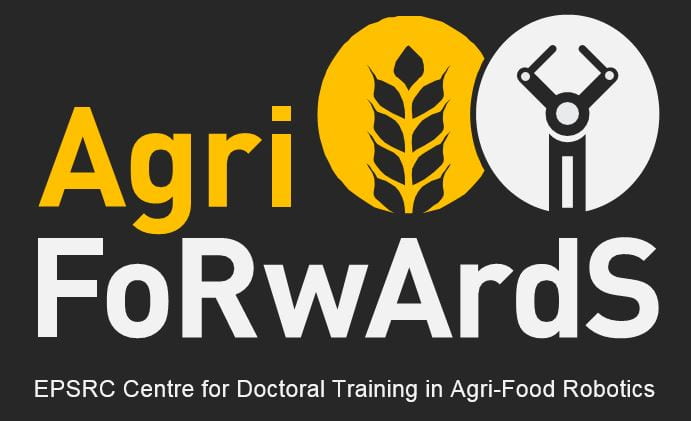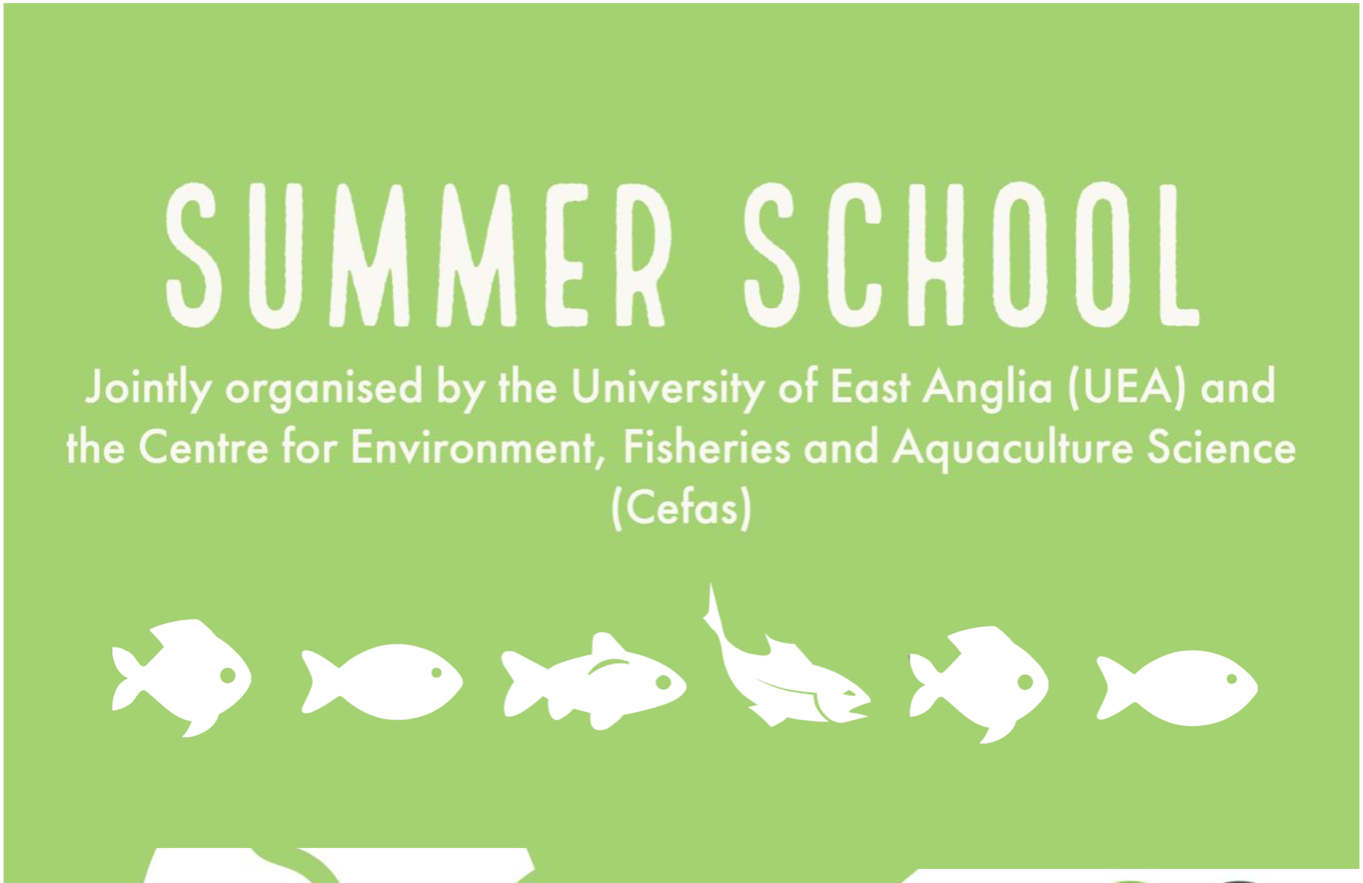On the 4th – 8th July the AgriFoRwArdS CDT held their 3rd annual summer school; this year hosted by the University of the East Anglia (UEA) in collaboration with the Centre for Environment, Fisheries and Aquaculture Science (CEFAS).
The host for the week was Prof Richard Harvey, co-investigator of the AgriFoRwArdS CDT and Dr Robert Blackwell, data scientist and research software engineer for CEFAS. John Pinnegar, Scientific Advisor, CEFAS, was also supporting and had a wealth of knowledge across the whole sector. Our co-ordinator for the week was the fantastic CDT Administrator for UEA, Mavis Foster-Nyarko, who made sure everything went as smoothly as possible.
The Aim:
The aim of the CDT summer school was to bring all CDT students together within an enriching week of educational workshops to enable students to engage with the CDT, whilst also expanding and exploring their skillset within the robotics and autonomous systems industry.
This summer school had a little bit off twist as its theme was based around entrepreneurialism. This allowed students to explore what is required to take a concept from design to investment and everything in between.
The objective of the week was to improve “soft skills” over technical ones. The key areas of focus were:
- Learning – how to pick things up and reason quickly
- Figuring – how to make reasonable estimates using partial data
- Explaining – how to communicate and get others on the same page
- Managing – how to set and stick to targets while still satisfying objectives
To put all of the above into a project and fit it all into a single week, the Fisheries sector (via CEFAS) was used as a broader way to explore these four soft skill areas.
The Challenge:
Using the fisheries theme, the group was given a challenge to build a robot to catch, sort, and cook fish and chips! The designed machine(s) should be capable of producing what every seaside caterer desires: fresh fish and chips, caught and cooked sustainably and sold at a premium price! To achieve this, the group was split into five teams. These were:
The Fish Finder – It’s quite possible for a fishing boat to spend several days at sea without catching a single fish of value. How can we maximise the sustainability of our fishing missions?
The Fish Catcher – Obviously we could program a robot arm to catch a fish – and we have robot arms available to you so could you program them as proof-of-concept demonstrator?
The Fish Sorter – It’s one thing to catch a fish, it’s another to decide if that fish meet your quota and consumer need. How easy is it to sort fish? Perhaps you could produce a proof of concept demonstrator?
The Fish Cooker – People pay good money to have their fish prepared and cooked. How practical is deep fat frying a fish on the back of a fishing boat?
The Fish Seller – Fish is a commodity so its price varies and it varies depending on what state it is in. How can you maximise profits for the fisher and avoid middlemen, brokers and others who would charge the customer merely for moving fish from one customer to another?
All of this information was available to students via the CEFAS Summer school GitHub repo, with much more detail about what each separate part of the challenge required.
The Week:
The week was split over five days with Monday AM allowing travel time to get to UEA. Each day had a different theme, with experts from raising venture capital to CEO’s of large agri-food businesses supporting the students across their respective group challenge. Tuesday was reserved for a visit to CEFAS to hear how they are using technology to improve their management and understanding of fisheries around the UK. The remaining days were available to work on the challenge. The full timetable can be found here.
Monday: Welcome
Monday started for many with the journey to University of East Anglia. From the University of Lincoln this took the form of a coach and around three hours journey time. As a comfort break and with several students in need of coffee, the coach stopped at the very interesting Anglia Motel (Holbeach), with its weird and wonderful military collection.
The Cambridge CDT students’ made their own way using public transport and this took a little longer (around four hours) due to transfers. However, everyone arrived on time and were in good spirits. We were met by Mavis at Congregation Hall, centre of the UEA campus.
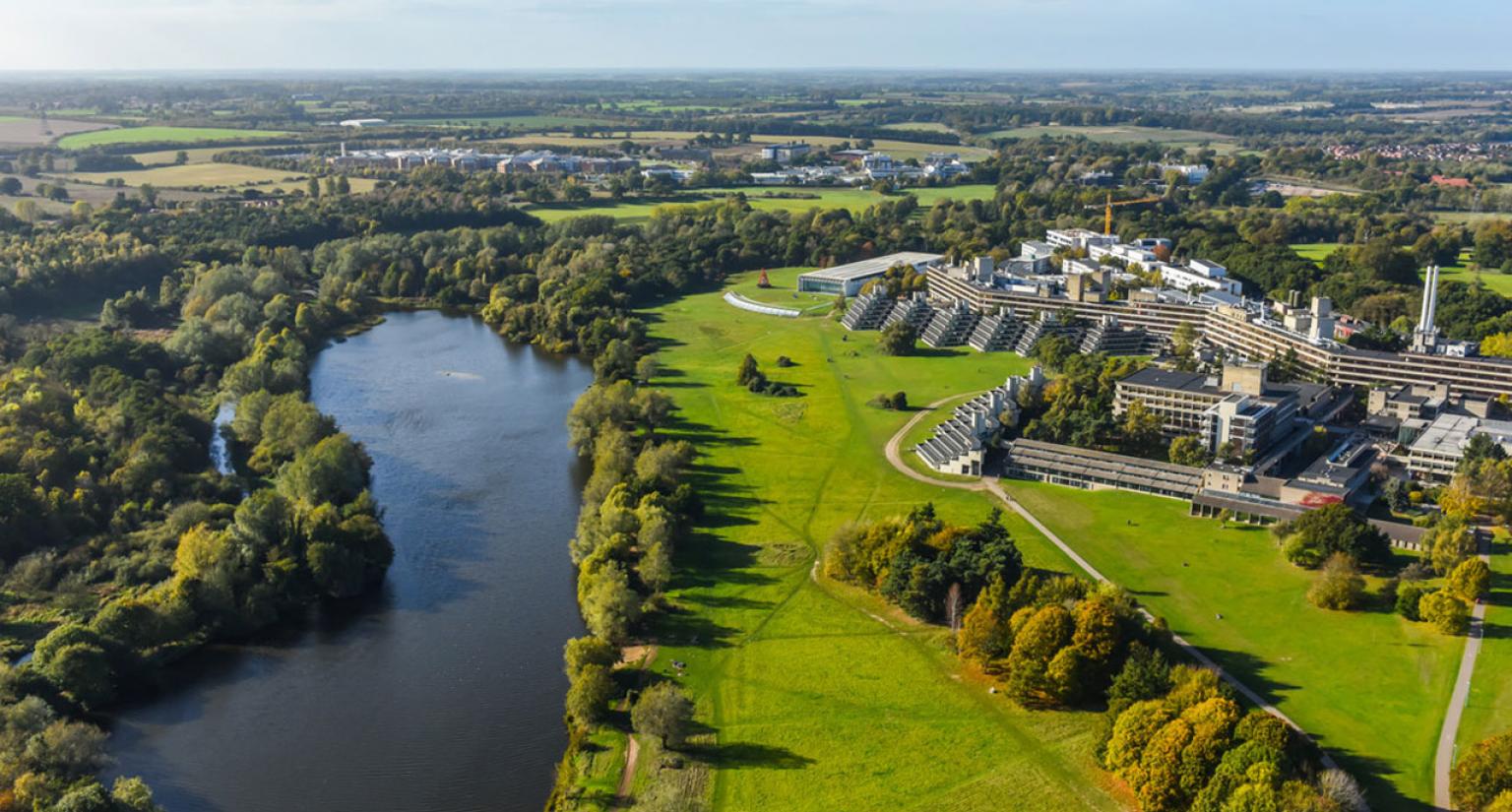
Mavis then took everyone to collect their room keys. Once students had had a chance to freshen up, everyone made their way to Productivity East, a bespoke robotics and innovation centre, where the event would be held through the week.
A buffet pizza lunch was provided and students were then welcomed and given an introduction to the week by Prof Richard Harvey. It was here that Prof Harvey detailed more about the challenge and split the group into teams based upon their skills and interests. Each team had a separate work area where they could work as well as full access to the technicians and wider Productivity East team.
The teams were built up so that those with an interest in computer vision tended to be in a team that was focused on computer vision with the support of any equipment, similar with other groups such as robotic hardware. Students were then free to arrange themselves and join other groups if they wished (which a few did).
Following this welcome, an introduction by Dr Kieren Hyder, and John Pinnegar of CEFAS was provided to give a high level overview of what CEFAS do. Both have an extremely deep knowledge of all things fisheries and students were able to ask questions about the industry and to try and get as much perspective as possible.
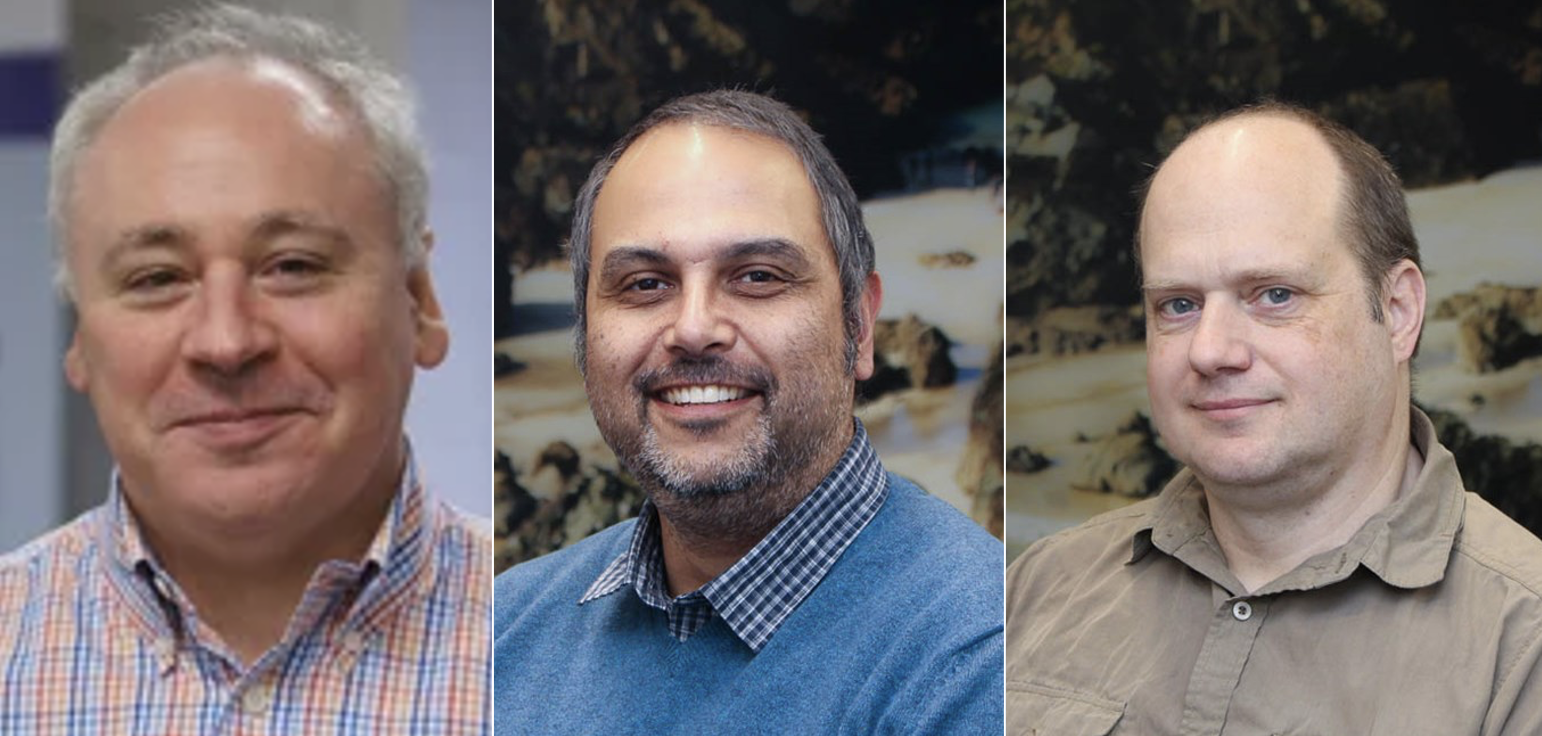
Immediately following Dr Hyder and John Pinnegar, students had the opportunity to hear a presentation by Prof Graham Finlayson. This was an fantastic chance to hear from someone who has been incredibly successful in both the academic and venture capital worlds. Prof Finlayson’s presentation targeted several areas of being an entrepreneur but one aspect stood out, the use of entrepreneurialism to keep doing research, rather than trying to drive research while doing academia. It was noted that this can lead to research taking second place behind lecturing and mentoring – both of which are great, but are only possible if great research is produced, because great students want to work with great researchers. This was an eye opening presentation and really gave another perspective of how to combine an academic career with building a business.
Prof Finlayson’s talk lasted around one hour longer than planned due to all the discussion it created and finished at around 17:30. The students were then free to explore the campus and surrounding area. Just before people left for the day, meal vouchers were given for breakfast and lunch at Zest, the UEA campus cafe. Many took the opportunity to do this and then catch up on each others thoughts in the local student union over a drink. At this point everyone was pretty tired and looking forward to going to CEFAS the following day.
Tuesday: CEFAS
The morning started off with breakfast in the Zest bar from 07:00 with the bus leaving for CEFAS at 08:30. CEFAS is head quartered in Lowestoft, which is around one hour from UEA. The coach departed on time and arrived just after 09:30. Upon entering the CEFAS building, everyone had to sign in and gain a security badge as visitors are not permitted to walk around CEFAS without an escort. Welcome coffee and snacks were provided in the main meeting room. Dr Kieren Hyder was present to greet the students and make introductions.
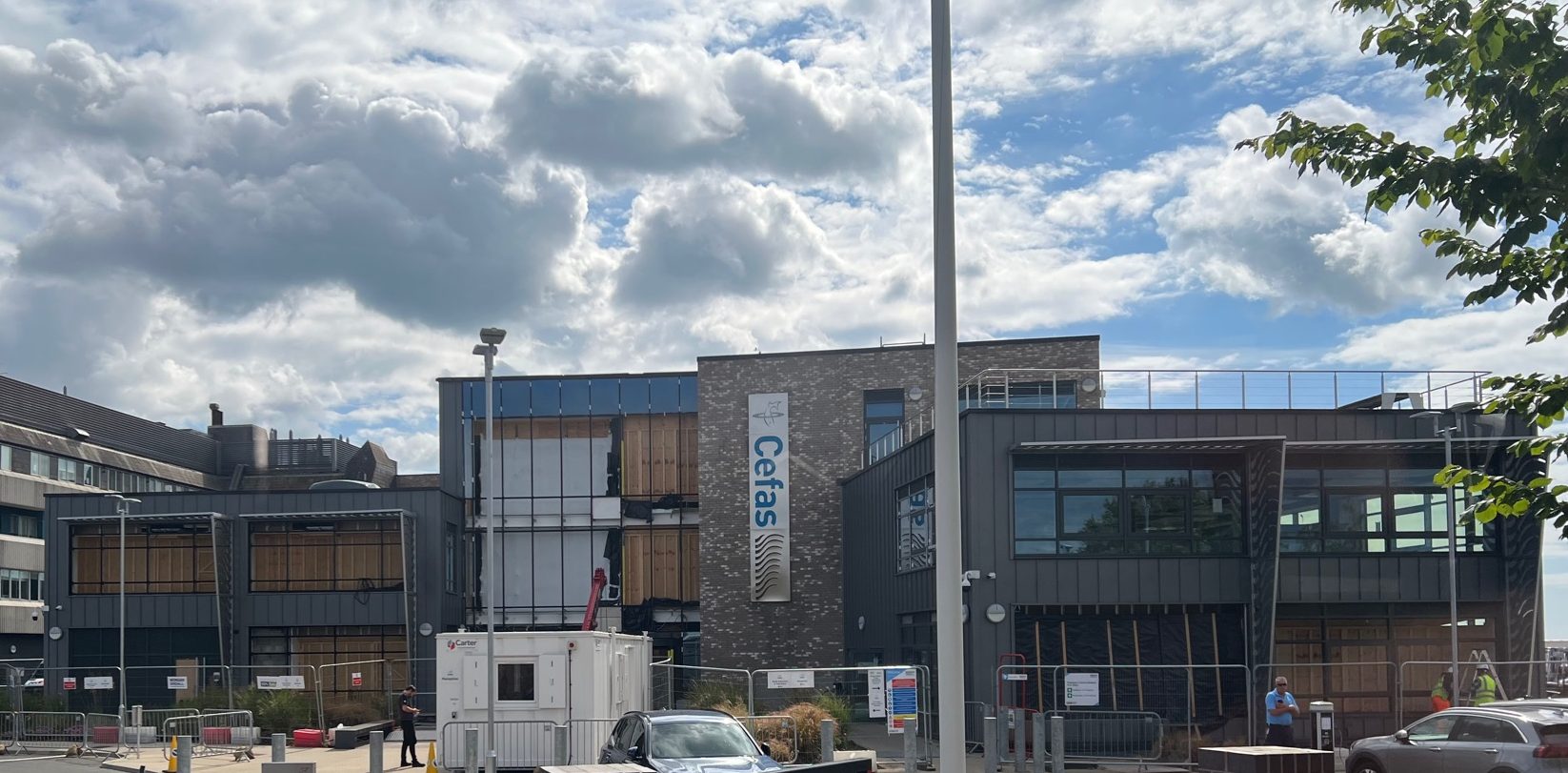
The CEFAS visit agenda was extremely comprehensive. A welcome introduction was provided by Dr Stephen Dye, Principle Scientist, Climate Change and Oceanography. Talks were presented throughout the morning ranging from Seaweed Aquaculture, dive computers and citizen science, genomics for fish species identification, and even the opportunity to review CEFAS’s remotely piloted aircraft fleet, as well as much much more.
In all, over 15 presentations were given and each one as fascinating as the next. The opportunity to see how other groups operating within the food and conservation sector used cutting edge technologies was inspiring.
A huge thank you to all the team including Simon Jennings, Elisa Capuzzo (via Teams), Mary Buckley, Richard Hill (via Teams), Celia Marlow (via Teams), Keith Winpenny, Gareth Norman, Cameron Gough, Jonathan Meaker, Matthew Eagle, Stephen Clarke and Martin Cliffen, Sara Stones (via Teams), David Maxwell, Joe Ribeiro, Lianne Harrison and Tiago Silva for taking the time to prepare and present their research.
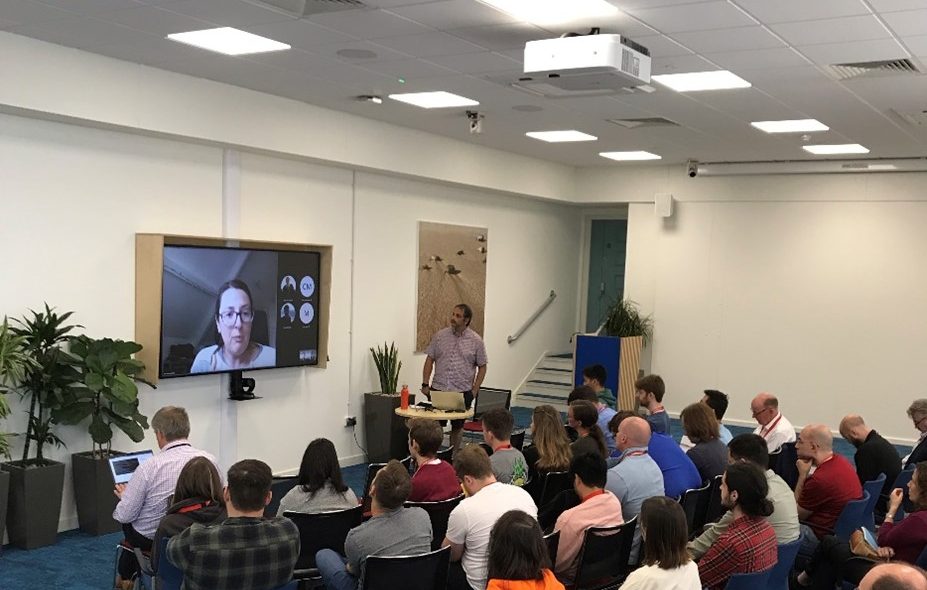
At around 13:00 a buffet lunch was provided and students were able to mingle and discuss the presentations and their thoughts. Specifically, students were encouraged to ask how any technology demonstrated could contribute to the individual team challenge. The CEFAS team were aware of the challenge activities, so they were ready and on hand to answer any questions they could. This was really welcome.
Once lunch had concluded, a student Question and Answer panel was then presented. Here, the students were offered the chance to present their thoughts on how their research could positively impact CEFAS. The aim of this discussion was to knowledge share and identify areas where collaborations could occur. This started off a little slow but soon gained momentum as topics converged upon the general knowledge of the participants. It mainly revolved around questions and clarification but ultimately was useful.
Once the panel had closed it was around 16:30, the group took a break for a rest and walked to the beach (directly outside CEFAS) to have a game of cricket, rounders, fly kites, play frisbee and just have a bit of fun. Many students also went down to the sea and had a paddle, which was really nice!
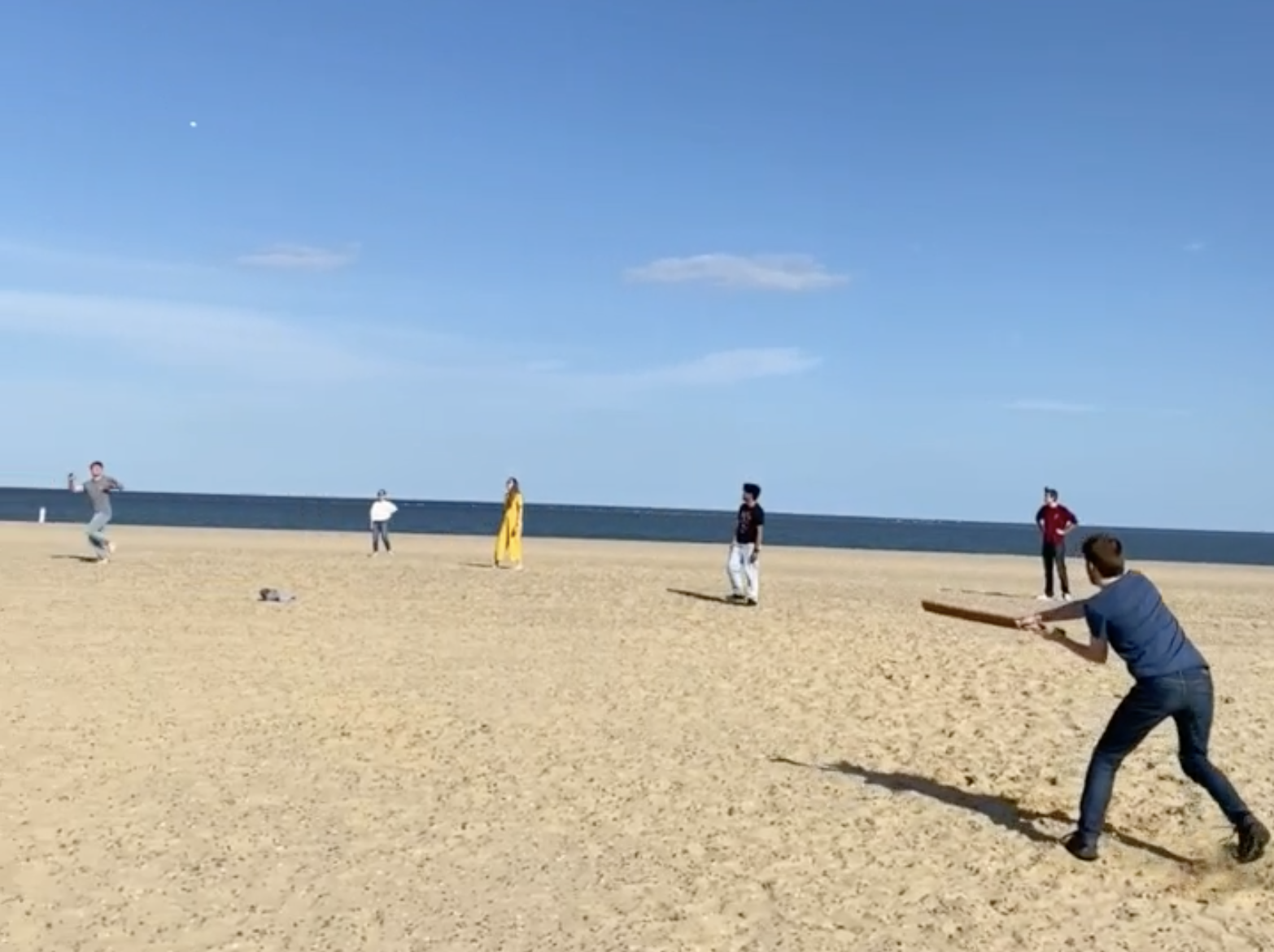
Once everyone was thoroughly tired and ready for dinner, the only thing that would hit the spot is fish and chips looking over Pakefield beach (one of the most easterly points in the UK). Students had ordered this before hand and the chippy (Pakefield Plaice) was only a 5 minute walk away. Once everybody had received their order, they took a short walk to the cliffs, then sat down watching the sea roll in and the ships pass by. On the way back everyone headed off for a quick drink at Jolly Sailers pub ready to catch the coach back to UEA at 19:30. It was a thoroughly enjoyable day!
Wednesday: Working on the challenge
Wednesday was dedicated to working on the challenge at Productivity East. Some teams required additional support and there was an opportunity to speak with Dr Surge Raemaekers of ABALOBI.
ABALOBI is a South African-based, global social enterprise. Their mission is to contribute towards thriving, equitable, Climate Change resilient and sustainable small-scale fishing communities globally, through the joint development of Technology For Good. Dr Raemaeker’s spoke about how they are building small community fishers and utilising co-operatives to improve local livelihoods, improve quality and traceability of produce, as well as improve sustainability efforts within their regions. Dr Raemakers was extremely passionate about his work and it shone through.

Teams working on technical challenges had the support services such was technicians and staff available and on hand when required. Each team was free to set their own agenda for the day. The Fish Catchers team got stuck in straight away implementing controls and mechanisms to catch fish using visual recognition systems, a magnet, a Universal Robot UR10 robotic arm, and a fishing rod. No one asked if they had a fishing licence!
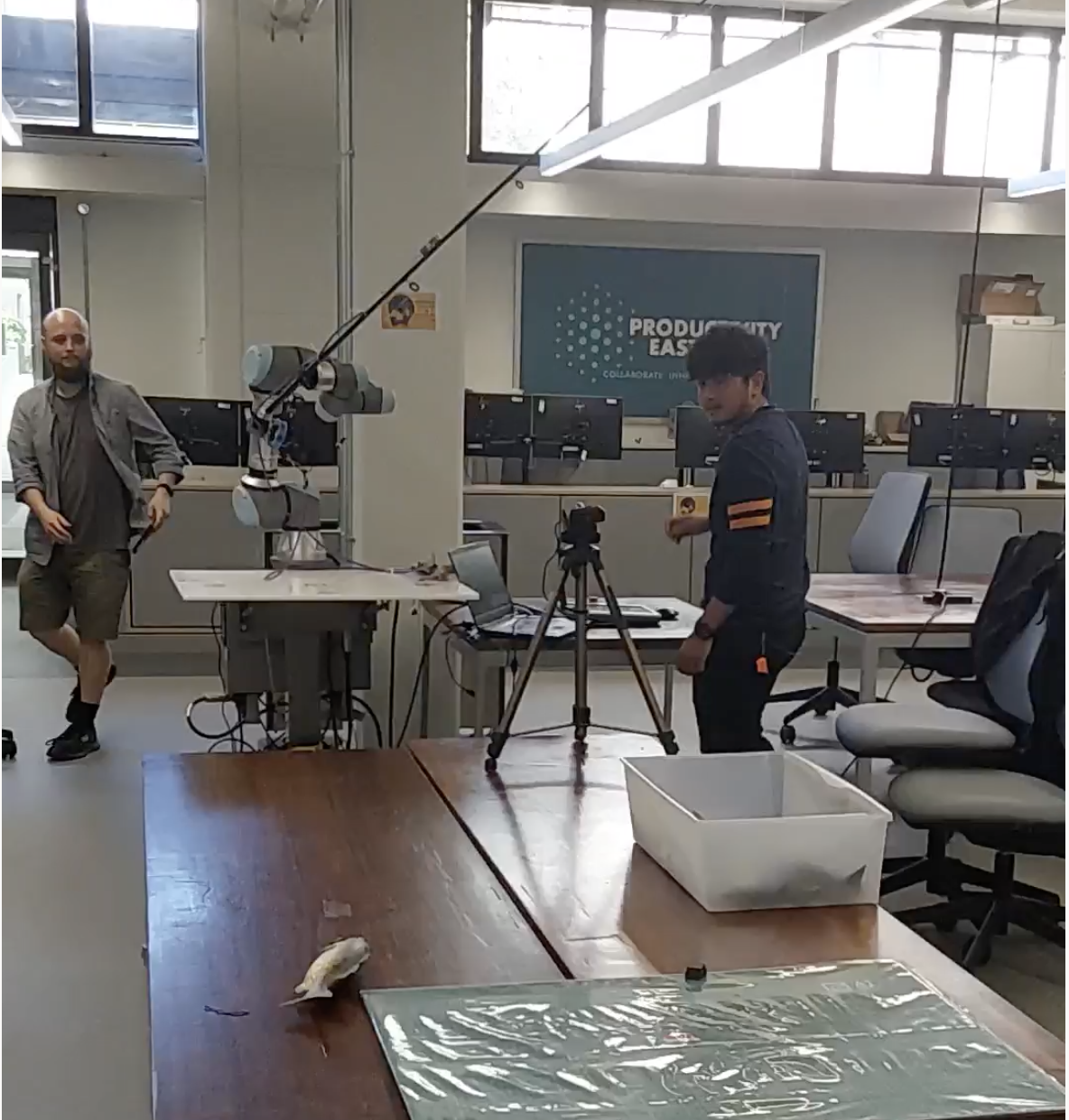
The day was very fast paced and the morning went in a flash. The final presentations were the following day so each team was trying to get some sort of finished artefact ready, and initial thoughts around who would be presenting what bits.
The Fish Finders and Fish Sorter teams were also well on their way to developing solutions using GPS technology and real time imaging apps to present their ideas. An exciting start was also made by the Fish Cooker team who seemed to have already completed a large part of the challenge with a fully specified ‘kitchen in a container’ with autonomous systems running throughout. They also had the best logo of all the teams so far. Their logo probably summed up the general emotional state of the teams knowing that students had to present their ideas the next day but it feeling like the week had only just begun!
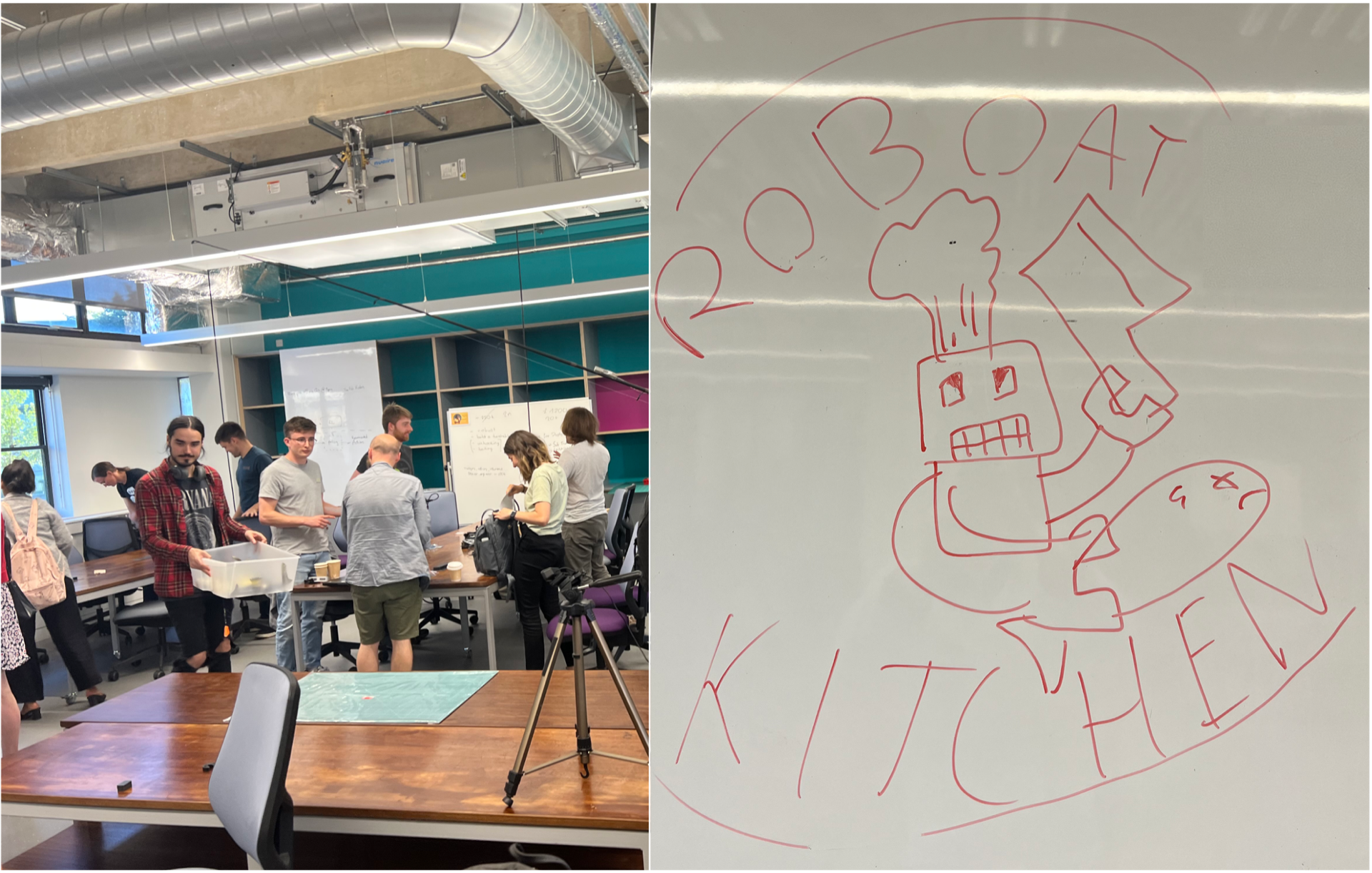
Thursday: Presentations
This was the last full working day of the summer school. Presentations were at 17:00 and each team was given around 15 minutes. Prior to these, and to start the day, an extremely useful and interesting conversation with John Burton, CEO of Worldwide Foods Ltd took place.
John made himself available and rescheduled three meetings to make sure that he could answer our questions on what the fisheries industry is about, how it works and what are the key characteristics to being successful in the industry. John spoke at length about his experience and knowledge of the fisheries industry as well as how his businesses operate in the sector. These were remarkable insights and very gratefully shared with the students. John was extremely friendly, open, and very helpful. Every question was answered and even with some internet connection difficulty he remained on the line and made sure everyone was happy with what had been said.
Following this, the students had a brief break for lunch and the afternoon was mainly reserved for preparing presentations and running around each of the groups trying to understand what they were going to say so no presentation overlapped! This was an intense period of time but really helped whittle out the useful but non-needed components of the group work. It also helped everyone see how each of the teams activities may link.
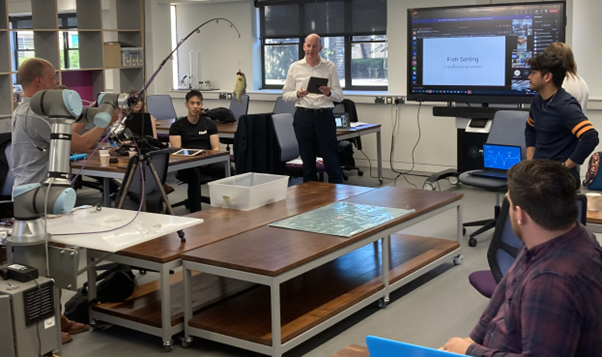
Once 17:00 hit the teams sprung into action and the presentations started. Representatives from CEFAS were present, including Prof Stuart Rogers, CEFAS Chief Scientist, who had made the 1 hour journey to attend the presentations in person.
During the presentations questions and answers were taken as well as clarification around ideas and areas for future work. The discusion ranged from how the sector can support the circular economy (which John Pinnegar noted was being trialled across marine engines) through to compliance and legislation of cold stores for containers that would prepare food stuffs.
Celebratory Dinner:
To celebrate the week, a closing banquet had been arranged for everyone at the Last Wine Bar in the centre of Norwich from 19:30 until sun up! This was a great time to let off some steam and have some fun outside the classroom!
These events are one of the few times the whole CDT will get together outside of the quarterly reviews so it was nice to catch up, have some great food and make some shapes on the dance floor!

Friday: Reflection
This was the last day of the summer school. Everyone was thoroughly worn out and looking forward to finishing the week and reflecting on what had been learnt. The wrap up presentations started at 10:00 and was generally well attended (there were a few sore heads in the audience from the night before 🙂 ).
To start the reflection, Prof Harvey had discussed with colleagues feedback on presentation style, thinking processes through the week, demonstration of entrepreneurial spirit as well as other general points. The students and wider teams spent around 1-2 hours discussing these points and sharing thoughts. This was very useful and was a great conclusion to the week.
To round the session off, several awards were given for best questions, most motived student, student with the most can do attitude, student with most resilience and students most able to compromise! The awards were very well received! Once this had concluded, it was then time to depart and head back to our home institutions.
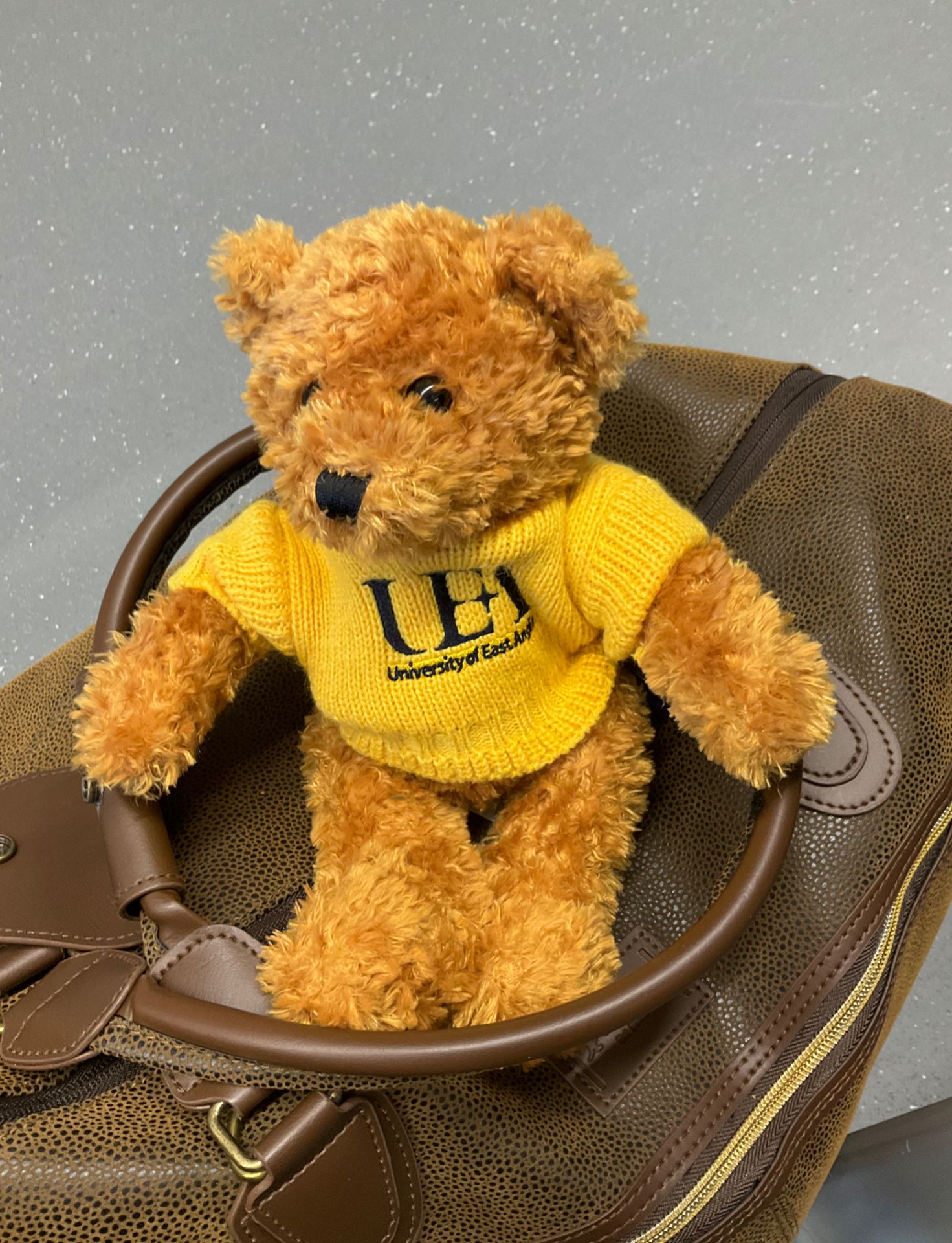
Conclusion: Success!
Overall, the 2022 summer school was a refreshing week tackling an interesting topic and a great opportunity to catch up with other members of the CDT. As the AgriFoRwArdS CDT grows making time to catch up gets more trickier. The theme of the week was a nice twist to normal day to day studies while still allowing everyone to explore their interests.
A huge thank you to Prof Harvey, Dr Blackwell, CEFAS, and Mavis Foster-Nyarko, who made sure that everything went without a hitch!
Do you want to get involved in the CDT?
If you are interested in learning more about what we do and if you share a passion for agriculture and technology then go to our AgriFoRwArdS CDT website to see more about our research, how you can be involved and how to apply to be a student in the program.
